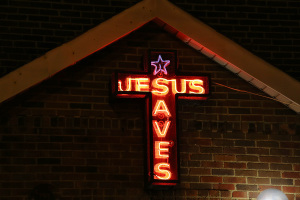Did the flood of Noah cover the entire earth? Hugh Ross on what the Bible says

Was Noah's flood geographically local or over the entire Earth?
Speaking last week on an episode of the apologetics group Reasons To Believe YouTube channel, the acclaimed astrophysicist and Christian apologist stressed that when considering the flood of Noah, like any other biblical event, it is important to take into account the entirety of Scripture, not just the specific chapters in Genesis where it is recounted historically.

"2 Peter addresses it, the poetic books address it, so you really want to look at everything the Bible's got to say about the flood of Noah," Ross said.
2 Peter 2:5 states that the "world of ungodly people" was destroyed with a flood. An important distinction, he pointed out.
The Greek word for "world," cosmos, is also qualified with an adjective in that passage and earlier in 2 Peter, meaning that text is speaking of less than the whole globe.
"And from what we see in the first 11 chapters in Genesis, by the time of Noah, human beings had yet to build cities in Antarctica and Greenland and, therefore, there would be no need for God to flood Antarctica and Greenland," Ross elaborated.
Ross, a proponent of old earth creationism, argued against the claims of young earth creationists that the flood covered the entire Earth.
The most explicit texts about the flood, he said, come from Job, Psalms, and Proverbs.
Psalm 104 — the longest of what are called the Creation psalms — speaks of the third day of creation, of God transforming the planets from a world of water without continents or islands to world of continents, islands, and oceans. In verse 9 of that Psalm it is established that never again will water cover the whole face of the earth.
"So there's an explicit statement, once we've got continents on the face of the earth, never again are we going to return to a water world," Ross said.
Thus, that would allow a world of ungodly people to be flooded but not the entire surface of the earth.
Additionally, in three other Psalms, in Job 38, and in Proverbs, God speaks of creating permanent barriers to the waters once the continents are in place, ruling out the possibility that Noah's flood covered the whole planet.
When Ross speaks with those who hold the young earth creationist view, they often point to Genesis 7:11 and the verses that follow where the text speaks of the high mountains being covered with water to a depth of 15 cubits.
Yet in biblical Hebrew, the vocabulary is relatively small, he said, noting the word for mountains is equivalent to hills or mounds. The word "high" could also mean elevated, he continued, that the water covered all the elevated hills that were visible to Noah from his position atop the ark. The Hebrew word used in Genesis 8 for earth cannot be used accurately to refer to the entire surface of the planet, he said.
"I think the clincher is what you see in Genesis 8:5-9 when the floodwaters are receding and Noah releases a dove," Ross said.
From the dove's perspective, water covered the whole face of the Earth, the same phrase used earlier in Genesis 7 where it speaks of waters covering the mountains more than 15 cubits. Since the dove could not have seen the entire Earth, the word being used must be referring to what can be seen by the observer, Ross argued.
"The phrase of the entire face of the earth needs to be understood in the context of the observer," he emphasized.
When non-Christians discover that the Bible does not teach that the floodwaters covered the whole earth they are more open to considering its claims as a serious, inerrant document, Ross explained.
Reasons to Believe takes the view that the first 11 chapter of Genesis are indeed history, that what occurred were in fact actual events.
Ross is president and founder of Reasons to Believe, and an adjunct faculty member at A.W. Tozer Seminary and Southern Evangelical Seminary.





























